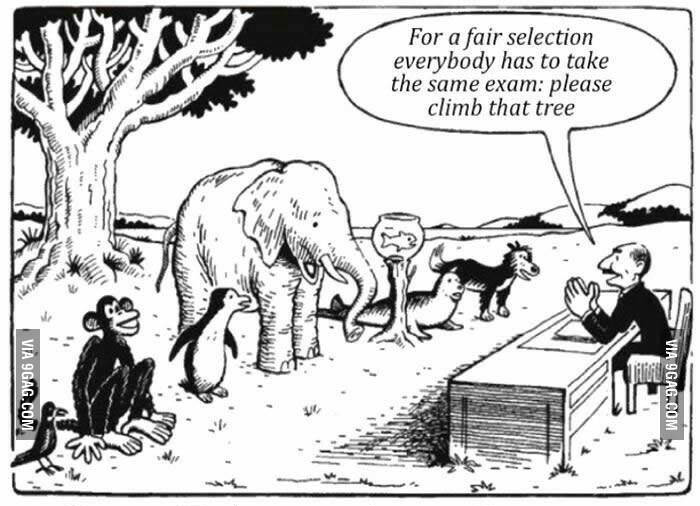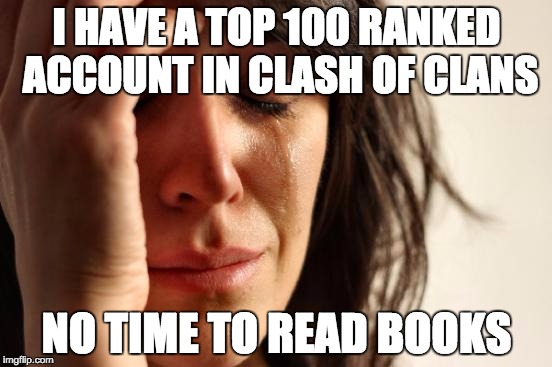Your car dealer just handed you the keys to your new car. Right before he waves you goodbye he reminds you once again: “Every 5.000Km remember to come by and have your engine oil changed”. Disregard that crucial piece of advice and your engine wears well before its advertised useful life. Timely oil changes ensure a smooth, efficient ride; dirty oil makes your car’s engine rough. And rough rides always stall at the worst time.
The road you’ll drive on during your life requires frequent and timely oil changes. And the straightforward analogy here is that oil is actually education. Knowledge. Skill. Pro tips. Street smarts. But as your car’s engine runs on a specific type of oil you need to go after specific and purposeful types of knowledge.
At first I meant to write this post to address just developers. Then I thought it should be more generic to include other specialists whose industries evolve at a fast pace, like doctors and all sorts of engineers. Eventually I decided it makes sense to address just about anyone who cares about their intrinsic value. What comes next in this post is not “patronizing”. It might look like pretty straightforward stuff, but read it and then ask yourself. Do you actually do any of what I am about to preach?
You see, unfortunately most people have this false notion that education stops after graduation. The hurtful truth is that graduating is not the end, it’s the beginning. And at some point you need to address the elephant in the room; what you know today is not enough to get you where you need to be tomorrow. You must continuously reinvent yourself - change your stale oil - in the form of new knowledge acquisition. Your most effective years as an adult, both in terms to what you contribute to the economy and what you make out of it, happen long after your graduate. Don’t you think it makes sense to prolong your educational process long after you’ve finished formal schooling?

If changing your car’s oil means leaving your car to the shop for weeks or years, you’re doing it wrong. Constantly educating yourself must not come in the form of the new three-year-long degrees or pricey training seminars that set you back financially. You need to make your own curriculum. Pick the stuff that you think matter most, treat your professional environment as your training pit and put them to work. Asking any successful entrepreneur will yield the same answer: You learn by friction. Engaging in stuff. Doing. Making mistakes and learning from them.
“An investment in knowledge always pays the best interest” - Benjamin Franklin
Boom, good old wise Benji just hit the nail on the head. You need to treat your education as an asset. In fact, education along with experience are the most important and valuable assets you have for your professional career. There’s a slight problem though. They are expiring assets; their values diminish over time. Much like your car and the oil it runs on. The forces that shape today’s markets and industries are so fierce and malevolent that can render your experience obsolete and utterly irrelevant. The world is changing fast and so is your profession and the industry you’re serving. As the price of your knowledge assets declines, so does the value you’re providing to your company or to your client. And if you really care about you, your intrinsic value, you really need to constantly figure ways to prevent it. You need to change your old, stale oil. You need to treat knowledge as assets in a portfolio.
Creating and managing your knowledge portfolio
Since we’re now essentially talking about portfolios let’s see what top-notch traders have to say about managing (financial) portfolios.
One of the basic rules is to invest often. You need to regularly acquire knowledge and experience even if it’s in small amounts. Forming such a habit will cumulatively build up serious amounts of value.
Then of course, every trader will tell you that diversification is the safest way to keep your portfolio’s value steady. As long as you learn lots of different things the more valuable you are. Because even if some chunks of your education become obsolete, you’d still have the others to carry on. The more skills you’re comfortable with, the more you will be safe against abrupt changes and the more easily you will be able to adapt to your competition.
And then there’s risk. I am pretty confident that your career, whatever that is, spans along a spectrum that consists of risky, high-reward skills to lower-risk but meh-reward skills. So it’s not a good idea to invest in a Ph.d in fossil fuels since they’re about to go extinct soon. But again nor should you invest in something entirely different than energy and miss out on the potential next energy industry boom.
Assets of portfolios are meant to be traded, hopefully at a price premium. Learning an emerging skill before it becomes mainstream is not easier than picking up an undervalued stock. The return on investment however might be equally big. You need to focus on knowledge that is easily found and quickly digested but will potentially pay you back in the future. Don’t throw unnecessary knowledge in your portfolio just for the shake of it.
Finally, you need to revisit, reflect and reiterate. Pick one time during the year to sit back and reflect how you did in knowledge acquisition until the previous time. New Year’s Eve or Septembers, right after your vacation, most often work better. Evaluate what worked and what didn’t. Readjust. Keep digging deeper on one matter or just abandon it entirely. Fine tune your process. Optimize it. Get better and gaining more and more knowledge with the least possible effort. And then next year, do it again.
“I don’t know how” / “I don’t have time” and other lame excuses.
Oh, come on! At least be honest with yourself. You don’t know how because you didn’t bother to learn how. The problem with most people is that everyone wants solutions mouth fed to them. That’s not how it works. You need to teach yourself how and only you can do that. It’s easier to relent under the weight of “I don’t know how” than it is to sit your butt on a chair and engage in knowledge acquisition. Since the day that the web was released to the masses your “I don’t know how” is totally bullshit. Yet, I’ll make it easier for you:
- Go to www.amazon.com/books. On the left there’s a big list of book categories. Choose what you want to learn and then sort the results by “best selling”. Dig in, read reviews, see what others are buying. Find some titles put them on google an append “torrent” in the end. Actually, forget I said that.
- Go to www.twitter.com and make an account. Search by keywords related to what you want to learn. Find experts with lots of followers and follow them too. Skim their timeline for articles and content they share. Filter out the bullshit and cut out to the chase. Check back again in one week for new content. See who they follow and follow the back. Check their bios for their personal blogs. Read their blogs.
- Go to www.google.com and type a few keywords around the subject you want to explore. One of the keywords should be “forum”. Scout for forums with lots of members who are like minded and read the pinned posts. Then dig deeper. Engage, ask, discuss.
- Go again to www.google.com and type a few keyword around the subject you want to explore. One of the keywords should be “podcast”. Boom, another punch to your “I don’t know how”. Empty your iPhone off the music you no longer listen to and start downloading podcasts. Listen in 2x speed.
- Find conferences around your interests and attend them. The price you pay is nothing close to the value you get just by networking with like-minded congregations.
- Visit www.coursera.com. The are literally hundreds of high quality courses, mostly free from Ivy League Universities. You can have MIT professors teaching you stuff just by sitting on your couch and watching them. Do the suggested readings. Aim for at least one course per year on Coursera. There are lots of gems there!
- Go to www.meetup.com and find people gatherings around your common interests. If you don’t find one, create one.
There you go, now you know. But I know you have one more excuse. Apparently you don’t have time. Oh yes you do.
- Listen to podcasts while you drive. Radio sucks nowadays anyways.
- Have a book or a magazine or check your Twitter while waiting in line for your coffee or food or while you’re waiting for the bus. Or when it’s that time when all you friends around you take out their smartphones and gossip on stuff happening on Facebook.
- Toilet academy. That’s right. Instead of playing Flappy Bird while you throne yourself, opt for reading an article or a blog post. Or even a few pages of a book. Just don’t get too carried away with it because hemorrhoids are a bitch.
- Once in a month ditch the night-out with friends and go to a meet-up. You will make new friends there and learn a lot. You will also end up having drinks so it won’t be that bad after all.
- Are you jogging? You should. Listen to podcasts while you’re jogging. Exercising and learning, two birds with one stone.
- Every time you find yourself saying “I am bored”, grab a book and read a chapter. Cause you say that and I know it.
- Want to mown the lawn or paint a wall? Don’t do it, pay someone to do it for you. You should be spending your time wisely. Instead find some material to study.
- Have homework to do? Sit by the TV and watch a documentary while you do it. Or even Bear Grylls, he knows lots of useful stuff.

All you need is one hour every once in a few days. Using some of the hacks mentioned before you can definitely make up an hour. So yeah, you do have time.
At this point I know exactly what you are thinking. “What a waste of words, he’s just stating the obvious”. And you’re absolutely right. This post is nothing more than common sense. I am really not trying to educate you, rather than to motivate you. So ask yourself: “Am I making up an hour every once in a few days for my personal advancement?”. If you don’t I suggest you start effective immediately or one day you will have no place to employ your obsolete ass. If you do, sing for absolution. You’re on the path to enlightenment.
P.S: The analogy to financial portfolios was shamelessly inspired by The Pragrmatic Programmer by A.Hunt, David Thomas
